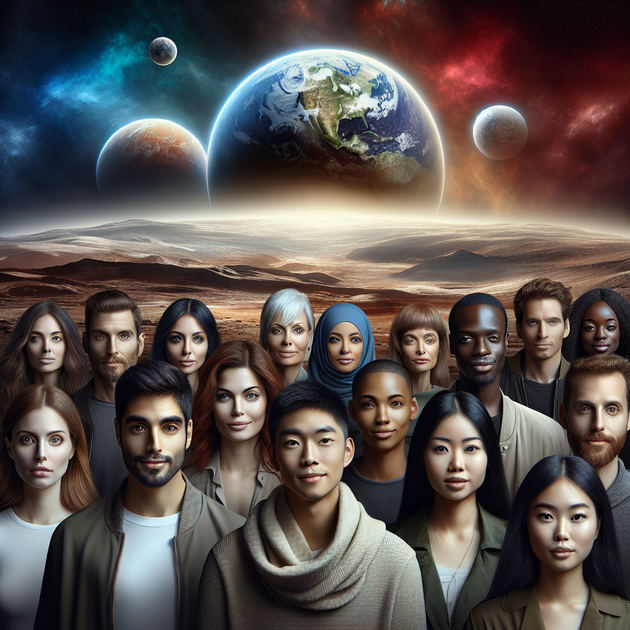What Would It Feel Like to Be Human—When “Home” Isn’t Just Earth Anymore?
Have you ever wondered what it would do to our sense of self if humans lived on more than one planet? It sounds like science fiction, but with talk of Mars colonies and moon bases heating up, it might be closer than we think. So how might humanity’s self-perception evolve after becoming a multi-planetary species? Let’s dig into the ways our minds and cultures could shift once “home” is no longer just Earth.
### Redefining “Human”: From Earthlings to Interplanetary Beings
The phrase “multi-planetary species” isn’t just about rockets and habitats—it’s about a fundamental shift in how we see ourselves. For all of history, being human has meant being from Earth. Our myths, religions, art, even our jokes are shaped by our blue planet.
But what happens when some humans are born and raised on Mars or in lunar cities? Suddenly “Earthling” is only part of the story. We might start thinking less in terms of national or even planetary identity—and more as members of an interplanetary community.
It could look something like this:
– **New identities:** People might call themselves Martians or Lunans. Kids born off-Earth could develop their own slang and habits.
– **Shared challenges:** Coping with space radiation or low gravity might create bonds that cross old boundaries.
– **A broader perspective:** Looking back at Earth from millions of kilometers away could make old conflicts seem small—and shared goals much bigger.
### Psychological Shifts: Rethinking Ourselves in the Cosmos
Living across planets would do more than change our passports—it would likely reshape how we think about life itself. Psychologists have long talked about “the overview effect”—that awe astronauts feel seeing Earth from space. Imagine that feeling becoming normal!
Here are some possible psychological changes:
– **Expanded empathy:** Seeing ourselves as part of a vast universe might make us more open-minded and curious.
– **New anxieties:** Being far from Earth could trigger homesickness or existential questions about belonging.
– **Resilience:** Facing the harsh realities of space may require new mental skills—adaptability, teamwork, maybe even different approaches to spirituality.
A friend once told me about a scientist who worked at an Antarctic research station—a tiny outpost surrounded by miles of ice. She said the isolation changed how she saw herself and her crewmates; they relied on each other in ways that felt almost tribal. Imagine that sense of connection stretched across two or three planets!
### Cultural Evolution: Creating New Traditions Across Worlds
Culture doesn’t stand still—it adapts to new realities. As humanity becomes a multi-planetary species, our stories, holidays, and values will evolve too.
Let’s imagine some changes:
– **Interplanetary holidays:** Maybe there’ll be celebrations marking the founding day of the first Mars settlement.
– **Hybrid languages:** Dialects could develop based on local conditions—like Martian slang for dust storms or lunar words for sunrise.
– **Artistic inspiration:** The landscapes alone (red deserts! endless stars!) would spark new music and art forms.
Just think—kids growing up on Mars might learn legends about their planet’s explorers much like kids today learn about Columbus or Armstrong.
### Bullet List: Big Ways Our Identity Might Change
Here are some likely shifts as we become a multi-planetary species:
– Our definition of “home” expands beyond Earth
– National identities blur in favor of planetary (or interplanetary) ones
– New myths and heroes emerge based on off-world experiences
– Shared global (and now galactic) challenges foster unity
– Art, language, and rituals adapt to new worlds
– A sense of responsibility for not just one planet—but many
### Ending Question
So as we dream bigger than ever before—leaving footprints not just on distant beaches but distant worlds—how will we answer that timeless question: Who are we? And maybe even more exciting… who could we become?

Leave a Reply